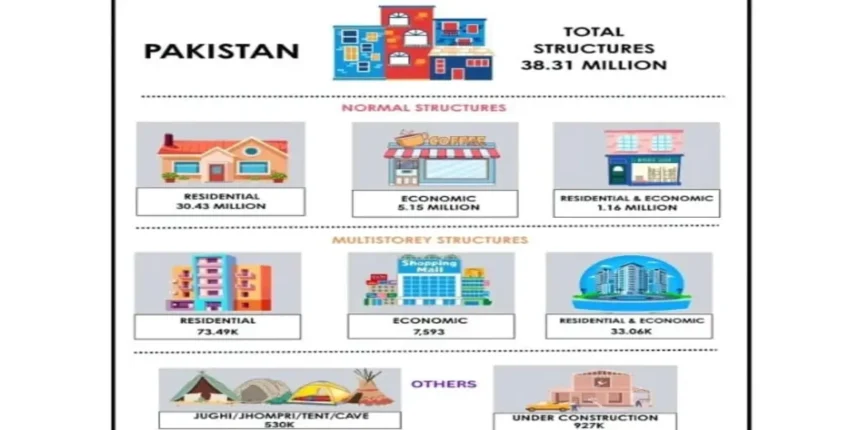Pakistan’s first-ever economic census has revealed striking contrasts in the country’s economic landscape, showing over 600,000 mosques but only 23,000 factories nationwide.
Launched by Planning Minister Ahsan Iqbal on Thursday, the report provides a detailed picture of Pakistan’s economy, filling a decades-long gap in data for policy planning. According to the findings, out of 7.2 million employment structures, 25.4 million people were working as of 2023.
Read more: Banks Lead as PSX Closes Volatile Session Higher
The services sector emerged as the country’s largest employer, engaging 45% of the total workforce, followed by the social sector at 30% and production at 22%. Punjab was identified as the largest employer with 13.6 million workers, while Sindh employed 5.7 million, Khyber-Pakhtunkhwa 4 million, and Balochistan 1.4 million.
The census showed that most businesses in Pakistan are small, with 7.1 million establishments employing fewer than 50 people. Only about 7,000 firms had more than 250 employees. Major establishments included 2.7 million retail shops, 256,000 hotels, 242,000 schools, 119,000 hospitals, 19,645 banks, and 36,000 madrassas.
Read more: Building Businesses: The Story of Nabeel Shaikh aka Nabeil Schaik
Iqbal called the data “the backbone of sustainable development,” stressing its importance for evidence-based planning. He noted that while India and Bangladesh have conducted multiple economic censuses since the 1970s, Pakistan lagged behind, making this report a landmark in the country’s policy framework.
Punjab accounted for the majority of structures at 58%, followed by Sindh at 20%, Khyber-Pakhtunkhwa at 15%, and Balochistan at 6%. The findings also revealed that nearly 80% of Pakistan’s infrastructure is residential, highlighting limited emphasis on purely economic or mixed-use buildings.


